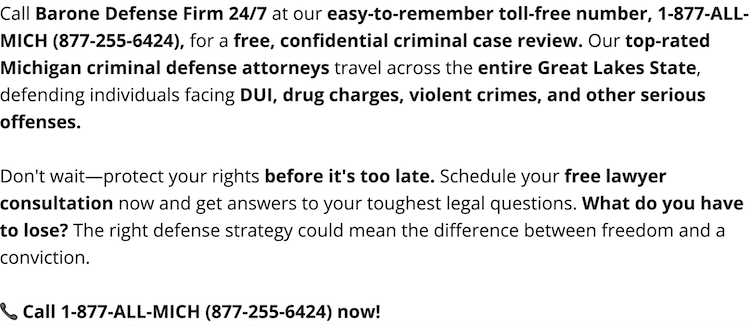Federal Conspiracy
For all intents and purposes, federal conspiracy laws are based on the notion that schemes to commit crimes are as reprehensible as the underlying crime itself. Because conspiracy is such a unique offense, there may be several potential defenses that apply to your case.
If you are facing federal conspiracy charges, it is absolutely crucial that you work with an experienced federal defense attorney. Speak to a Michigan federal conspiracy lawyer who can build a solid case for you.
Federal Conspiracy LawA conspiracy is (1) an agreement (2) between two or more persons to commit a criminal offense. Conspiracy is an inchoate offense, meaning that a successful completion of the underlying criminal objective is not required to obtain a conspiracy conviction.
For prosecution purposes, it does not matter if a member of the conspiracy is not aware of all of the details of a scheme or that the person only played a minor role in the plot.
There are over a dozen criminal conspiracy statutes contained in the United States Code. Only some of the criminal conspiracy statutes require that the prosecution prove that one of the conspirators committed an overt act in furtherance of the conspiracy to obtain a conviction.
Even when a statute does not explicitly require an overt act, its existence is generally significant for evidentiary and procedural reasons.
Although there are many nuanced and substantive differences among these statutes, there are some general principles that apply to all federal conspiracy laws. Namely, that members of a conspiracy are answerable for any foreseeable crimes committed by their co-conspirators in furtherance of the common plot and that statements by one conspirator are admissible evidence against all members.
Conspiracy Offenses Under Federal LawIn the federal context, conspiracy is one of the most commonly charged offenses and is one of the primary ways prosecutors target terrorism, organized crime, drug trafficking, and corporate fraud. Some of the most commonly prosecuted conspiracy offenses are:
- 18 U.S.C. § 371 – Conspiracy to commit any federal offense or to defraud the United States.
- 21 U.S.C. § 841 – Conspiracy to violate the Controlled Substances Act.
- 18 U.S.C. § 286 – Conspiracy to defraud the United States by submission of false claims.
- 18 U.S.C. § 24 – Conspiracy to commit a federal health care offense.
- 18 U.S.C. § 1962(d) – Conspiracy to commit a RICO violation
As with any other federal crime, the sentences imposed for a conspiracy conviction will be influenced by the United States Sentencing Guidelines. The penalties for federal conspiracy offenses can vary significantly depending on the underlying substantive crime and the accused's criminal history. For the most part, individuals convicted as conspirators will face the same penalties as someone convicted of the underlying substantive offense.
For example, a conviction under 21 U.S.C. § 841 can result in much harsher sentences because the penalties for drug trafficking apply in equal measure to a conspiracy to traffic. The main exception to this is a conviction under 18 U.S.C. § 371, which is punishable by up to five years in prison and a maximum fine of $250,000. A Michigan federal conspiracy lawyer can attempt to mitigate potential penalties that an individual may face.
Talk To a Federal Conspiracy AttorneyA Michigan federal conspiracy lawyer can be well-versed in federal conspiracy laws and have extensive experience defending individuals against a wide-range of conspiracy charges at the federal level. Call an attorney to learn how they can help develop a personalized defense strategy for your case.
 Barone Defense Firm Home
Barone Defense Firm Home




















